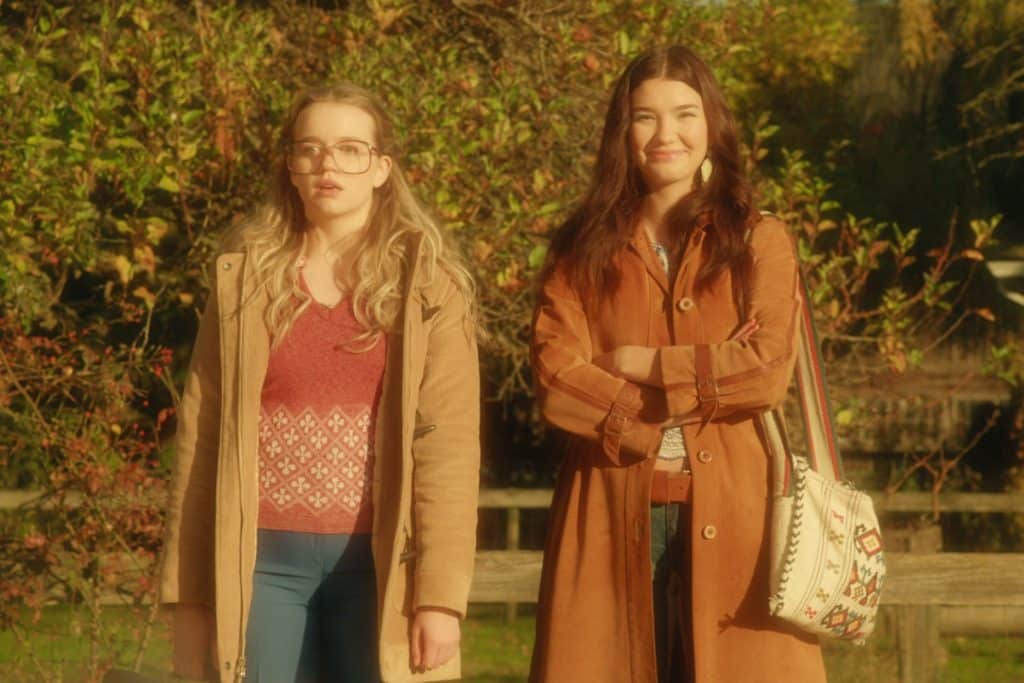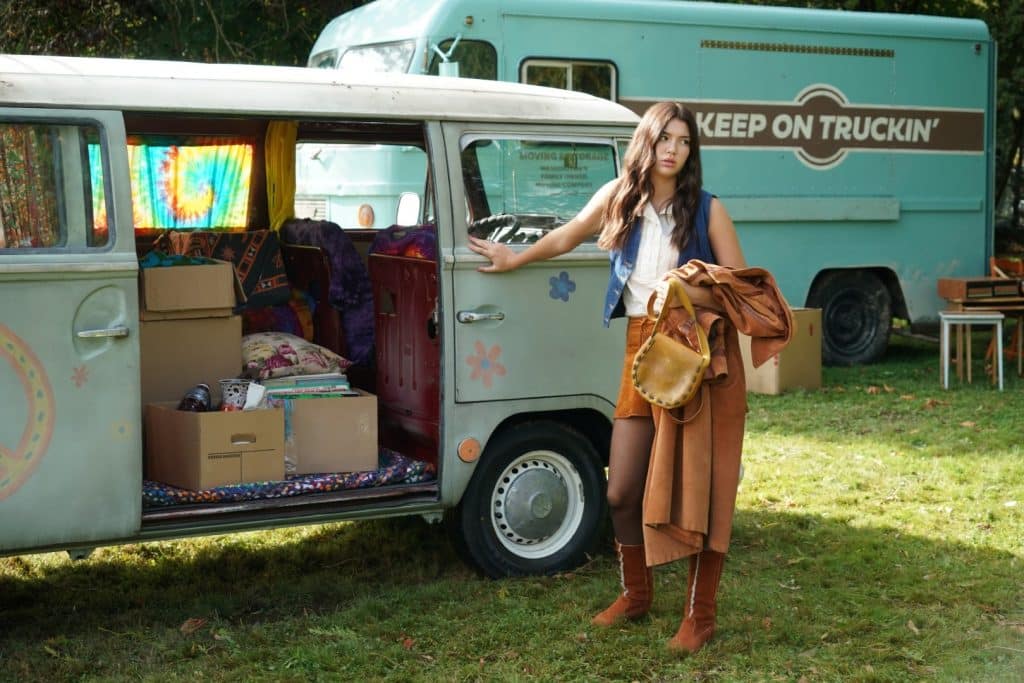Read also:
How to Watch FX Live Without CableHow To Watch AMC Without CableHow to Watch ABC Without CableHow to Watch Paramount Network Without CableMaggie Friedman’s adaptation of the Kristin Hannah novel wastes two charming performances by Katherine Heigl and Sarah Chalke.
Netflix’s new romantic drama Firefly Lane, based on the 2008 novel by Kristin Hannah, follows the multi-decade friendship of brash and bold Tully (Katherine Heigl) and smart and nerdy Kate (Sarah Chalke). They meet at age fourteen living on Firefly Lane. From there they spend years cultivating their journeys: Tully is a journalist with a wildly popular daytime talk show, and Kate took a break in her career to marry fellow journalist Ryan (a stilted Ben Lawson) and raise a daughter.
Through thick and thin, these two friends have remained close, showcasing their friendship through different timelines: their high school days in the 1970s, their early career days in the ‘80s, and the present-day 2000s. While it’s refreshing to see two fortysomething women lead a show, Firefly Lane is an overstuffed primetime soap that underuses the talents of Chalke and Heigl.
Chalke and Heigl are great choices for Kate and Tully, the odd-couple friends who still make time to hang out and sip wine, no matter how crazy life can get. Chalke, known best as Dr. Elliott Reid on Scrubs, brings her infectious snort-laugh to the awkwardly nerdy single mom/news producer Kate. Heigl, known for her Emmy-winning role as Dr. Izzy Stevens on Grey’s Anatomy, chews up a ton of scenery (and does lines of coke) as go-getter Tully Hart, not afraid to be the boss at her daytime show (and in the bedroom).

While Tully and Kate’s friendship is the true romantic relationship of the show, they never quite evolve into three-dimensional characters. When obstacles appear, like Kate’s impending divorce and Tully’s unresolved assault trauma, they get brushed aside, thus preventing the characters from fully developing.
Setting Firefly Lane apart from other romantic dramas is that it contains three timelines: Kate and Tully as teens, Kate and Tully in their twenties and thirties as rising journalists, and then Kate and Tully in their forties in the aughts. Each episode jumps between these timelines, supposedly to hook the audience in for a binge-fest, but feel more like a convenient misdirection for the writers to jump out of a storyline they can’t resolve.
The past episodes seem to be an excuse to burn some cash, adding some pricey pop hits of the ‘70s and ‘80s to the soundtrack while dropping references like “jazzercise” and “Microsoft” into everyday conversations. Most of the action points to the present day, the timeline where everything they built in the past starts falling apart (Kate is divorcing Ryan, and Tully has grown weary of fame and fortune) but it also feels dull. These privileged white women got everything they wanted – why are they so discontent? By episode three you might not be sure, and you might not care to keep watching.
Firefly Lane is an overstuffed primetime soap that underuses the talents of Chalke and Heigl.
It feels as if show creator Maggie Friedman (known for Dawson’s Creek, Eastwick, and Witches of East End) took elements from their other hit Netflix shows and cobbled them together. There’s the nostalgia of the past in Stranger Things, seeing Kate and Tully interact as teens in the ’70s and working girls in the ’80s (complete with a soundtrack of hits from the likes of Elton John and Duran Duran).
There are the sexy romps of Bridgerton with characters locking lips and hooking up (they waste no time showing Tully and potential boyfriend Max banging in her Seattle penthouse apartment). Then you’ve got the core of the story, the best friend relationship of Tully and Kate, echoing hits like Sweet Magnolia or Dead to Me. However tossing all of these elements into one series leaves Firefly Lane a choppy, bloated mess.
Firefly Lane flirts with some of the campy elements of romantic dramas, like ridiculous love triangles and emotionally heightened dialogue. Episode one hints at a love triangle between Kate, her soon to be ex-husband Ryan, and Tully. By episode three rolls around, it’s unclear if that was just a tease or if there are any romantic feelings between Ryan and either woman.

As far as the dialogue goes, there are some weird choices, such as the scene in episode three where Tully’s druggy hippy mom Cloud (Beau Garrett) breaks down sobbing while dancing with the girls, then promptly announcing, “I have to poop.” It’s a bonkers moment, but far from melodrama, and it will hardly leave the audience wanting to see more to come.
Firefly Lane isn’t a good show, and it’s also not a bad show that you’ll want to hate-watch. It’s just a bland show that could be on in the background, say as one is folding laundry or cooking. Heigl and Chalke are fun actors, and while it’s nice to see them lead a series, they’re being held back by a mashed-up script and contrived timelines.
Firefly Lane is a dull pastiche of other hit soaps that will leave you reaching for another glass of red wine to wash down the taste of mediocrity.
Firefly Lane comes to Netflix February 3rd.